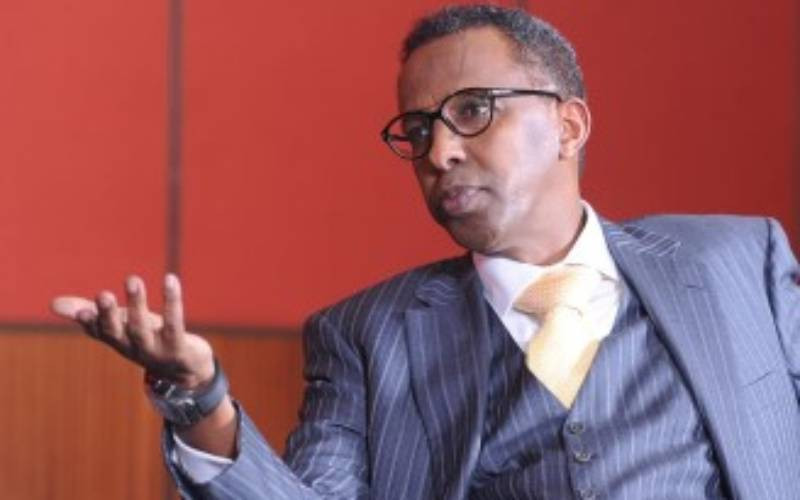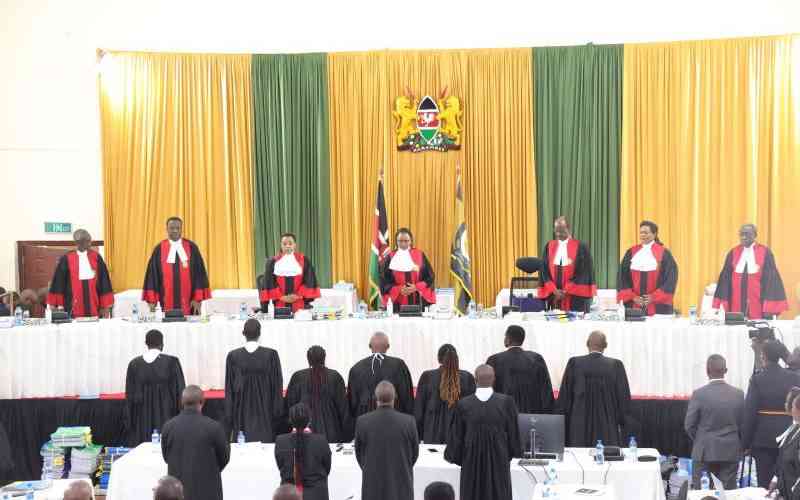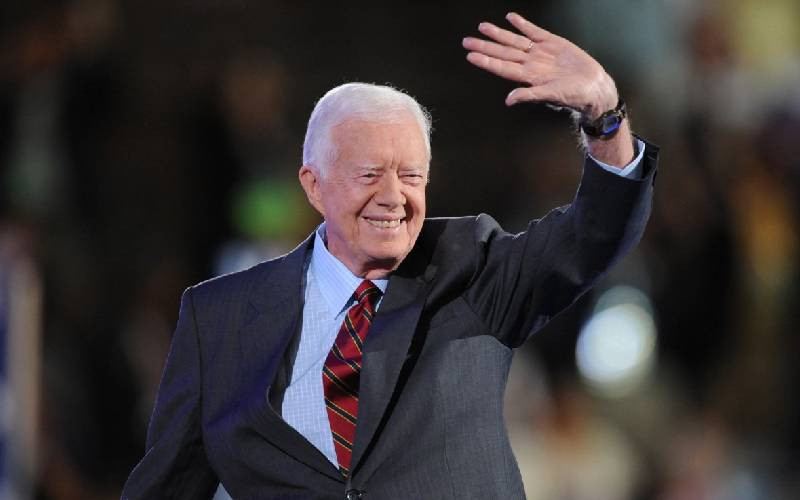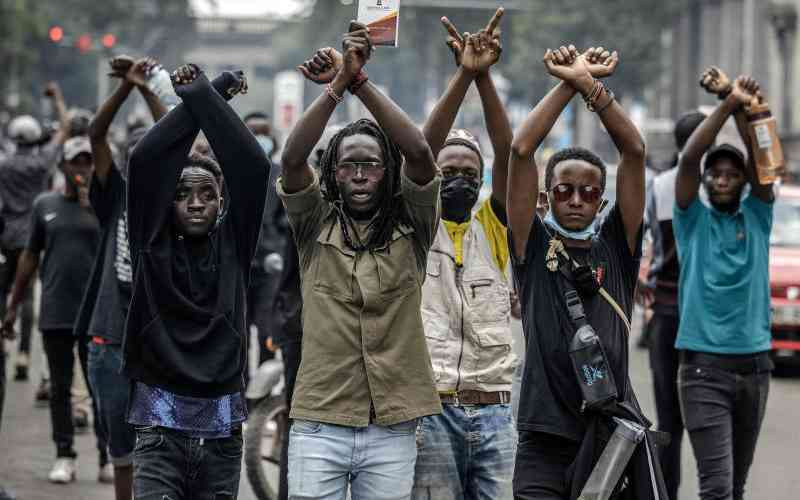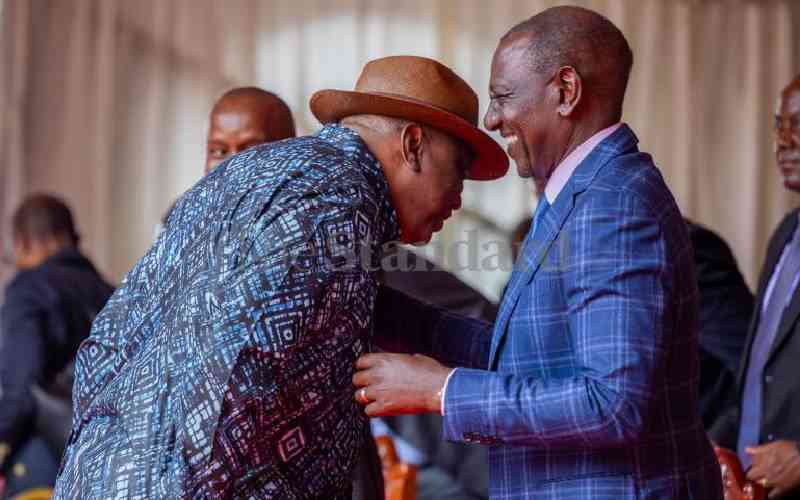The nullification of the August 8 presidential election results has plunged the country deep into political campaign mode once again. As Jubilee Party questions why the Supreme Court judges did not in their ruling take into consideration fundamental issues such as the right of the voter and the need for painstaking scrutiny of the ballot papers, it has hit the ground running to prepare itself for the repeat election slated for October 17.
It is hard to conclude where the dispute is really. All indications point to the fact that Jubilee won fair and square on August 8. The figures are indisputably formidable. It is simple mathematics.
First, Jubilee locked in vote-rich Central and Rift Valley regions. Before the polls, much was made out of the claims that the Opposition had made some inroads into these regions. There was even plenty of talk about a valley of discontent and a rift in the Rift.
But in the end, it all turned out to be feckless smoke without fire; mere motion without movement.
The National Super Alliance (NASA) point man in the South Rift, former Bomet Governor Isaac Ruto – who is now 'back home' in Jubilee - had promised to deliver 1.5 million votes to the Opposition.
Indeed, rallies addressed by Mr Ruto’s Chama Cha Mashinani and NASA were attended by mammoth crowds. But when the votes were cast, tallied and announced, the Opposition’s loss was head spinning.
Retain seat
Ruto could not retain his seat, humiliated by a candidate he had dismissed as a non-starter. NASA’s rhetoric was wildly off the reality mark. The South Rift sent an unequivocal statement that their support for Jubilee was as solid as ever.
As NASA faltered where they should have risen, Jubilee made impressive gains in the Opposition backyards of Western and Kisii. NASA had taken it for granted these regions were theirs for the picking. The voters had different ideas and NASA didn’t realise what hit them.
You just need to look at the number of MCAs and MPs Jubilee won in these places to ascertain how radically the ground is shifting. Why is Jubilee gaining traction in every corner of the country? It is all about development and the fact that Kenyans are now rejecting politics that divide and that lack a substantive agenda.
On August 8, Kenyans rose above tribal cocoons and chose leaders based on merit. This helped to burst the long-held myth that Kenyans will never shake off the shackles of ethnic politics.
Fostering inclusive politics founded on the tried and tested ideals of democracy has been the express intention of Jubilee all along. The primary reason for merging The National Alliance and United Republican Party as well as other affiliate parties to form a national party was underpinned by well thought-out ideologies and principles.
President Uhuru Kenyatta and his deputy William Ruto desired to shatter the enclaves of ethnicity and fashion a party that would unite all Kenyans irrespective of their ethnic backgrounds. A look at the voting patterns in the August 8 elections demonstrates that this dream resonated quite well with Kenyans.
Narrow-minded divisions
Clearly, Kenyans are tired of narrow-minded divisions perpetrated by tribal chiefs, and are eager to embrace politics based on broad national issues that transcend any form of exclusion.
Stay informed. Subscribe to our newsletter
While the Opposition approached the August 8 election in the usual disparate manner, in which tribal entities tenuously hold on to each other, Jubilee went in as a united and formidable party.
The results are there for all to see - an incontestable victory in all segments of the political arena. The party now commands a majority in both the National Assembly, with 142 MPs, and the Senate - 23 senators. It also controls the Council of Governors.
Jubilee also has the biggest proportion of women representatives at 24. And this is before you add the nomination slots. With these figures, Jubilee indisputably represents the true face of Kenya.
Last but of no less significance is the fact that Jubilee’s big win was an indication that its transformation agenda is working.
Infrastructure projects
Massive infrastructure projects that have been implemented will fuel economic growth and improve livelihoods.
Evidently, Kenyans are taking note of these drastic changes happening all around them. Their massive support for the President is therefore a thumbs-up for good work.
The presidential election on October 17 will just be a repeat of what happened on August 8. In fact, the voters will affirm that whatever electoral process is put in place, the democratic will of the people is supreme.
Therefore, instead of focusing on the minor shortcomings of the Independent Electoral and Boundaries Commission, NASA should go back to the drawing board and start pondering over why voters are deserting them in droves.
The earlier they realise that Kenyans are no longer attracted to parties lacking a serious policy agenda, the better for their dwindling fortunes.
Mr Temba is a communication consultant
 The Standard Group Plc is a
multi-media organization with investments in media platforms spanning newspaper
print operations, television, radio broadcasting, digital and online services. The
Standard Group is recognized as a leading multi-media house in Kenya with a key
influence in matters of national and international interest.
The Standard Group Plc is a
multi-media organization with investments in media platforms spanning newspaper
print operations, television, radio broadcasting, digital and online services. The
Standard Group is recognized as a leading multi-media house in Kenya with a key
influence in matters of national and international interest.
 The Standard Group Plc is a
multi-media organization with investments in media platforms spanning newspaper
print operations, television, radio broadcasting, digital and online services. The
Standard Group is recognized as a leading multi-media house in Kenya with a key
influence in matters of national and international interest.
The Standard Group Plc is a
multi-media organization with investments in media platforms spanning newspaper
print operations, television, radio broadcasting, digital and online services. The
Standard Group is recognized as a leading multi-media house in Kenya with a key
influence in matters of national and international interest.

